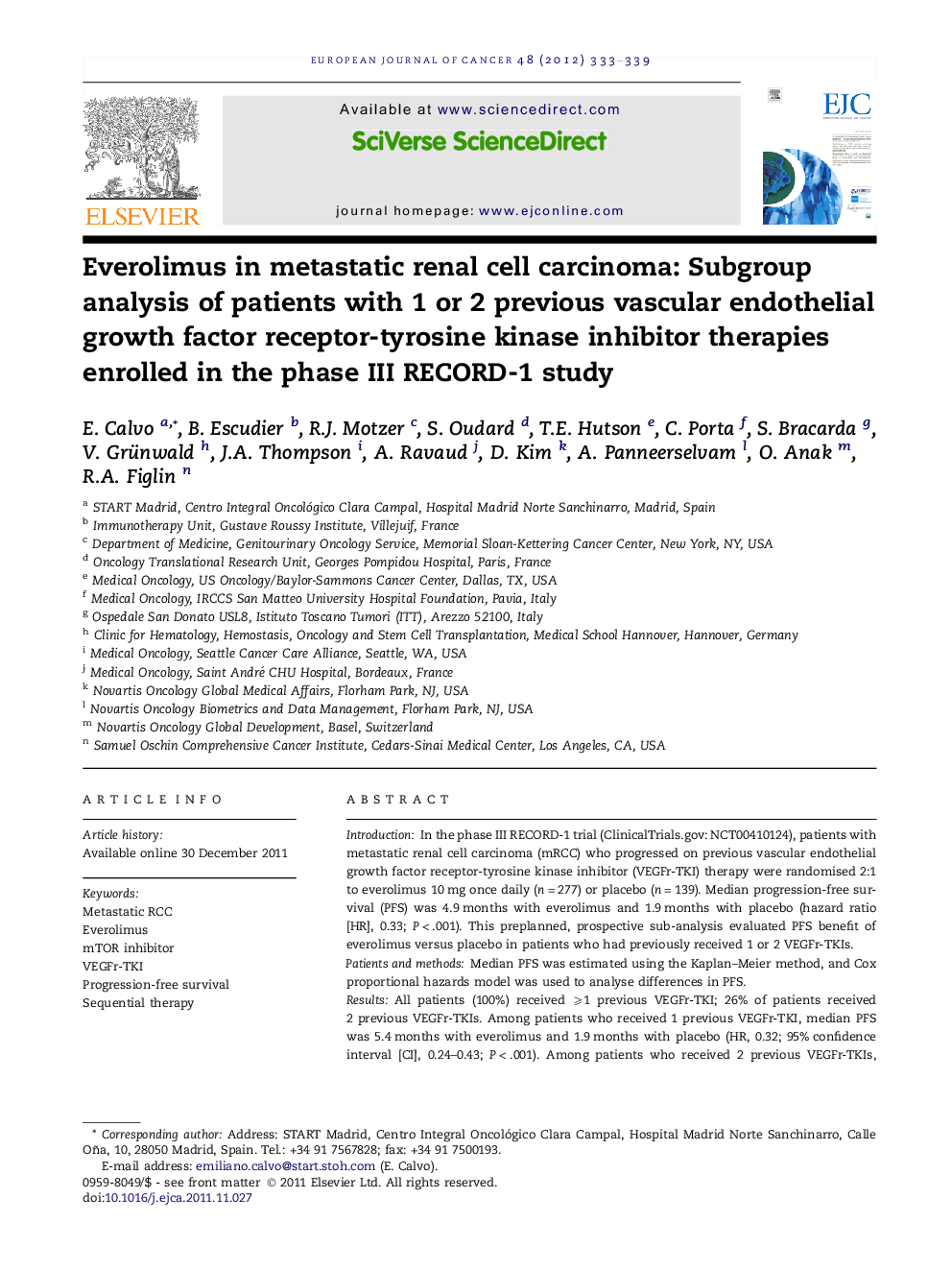| Article ID | Journal | Published Year | Pages | File Type |
|---|---|---|---|---|
| 2122361 | European Journal of Cancer | 2012 | 7 Pages |
IntroductionIn the phase III RECORD-1 trial (ClinicalTrials.gov: NCT00410124), patients with metastatic renal cell carcinoma (mRCC) who progressed on previous vascular endothelial growth factor receptor-tyrosine kinase inhibitor (VEGFr-TKI) therapy were randomised 2:1 to everolimus 10 mg once daily (n = 277) or placebo (n = 139). Median progression-free survival (PFS) was 4.9 months with everolimus and 1.9 months with placebo (hazard ratio [HR], 0.33; P < .001). This preplanned, prospective sub-analysis evaluated PFS benefit of everolimus versus placebo in patients who had previously received 1 or 2 VEGFr-TKIs.Patients and methodsMedian PFS was estimated using the Kaplan–Meier method, and Cox proportional hazards model was used to analyse differences in PFS.ResultsAll patients (100%) received ⩾1 previous VEGFr-TKI; 26% of patients received 2 previous VEGFr-TKIs. Among patients who received 1 previous VEGFr-TKI, median PFS was 5.4 months with everolimus and 1.9 months with placebo (HR, 0.32; 95% confidence interval [CI], 0.24–0.43; P < .001). Among patients who received 2 previous VEGFr-TKIs, median PFS was 4.0 months with everolimus and 1.8 months with placebo (HR, 0.32; 95% CI, 0.19–0.54; P < .001). The everolimus safety profile was similar for both groups.ConclusionsEverolimus was associated with prolonged PFS relative to placebo in patients who received 1 or 2 previous VEGFr-TKIs. Patients who received only 1 previous VEGFr-TKI had apparently longer PFS with everolimus in reference to those who received 2 previous VEGFr-TKIs. These results support the use of everolimus as the standard of care in patients who fail initial VEGFr-TKI therapy.
